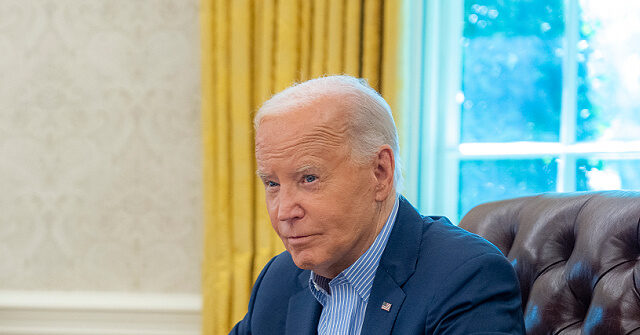On a recent episode of CNN’s “The Source,” Senator Michael Bennet of Colorado expressed concerns regarding President Joe Biden’s approach to the prosecution of his son, Hunter Biden, and how it could reflect on the Democratic Party’s moral standing in the political landscape. Bennet articulated that Biden had framed his campaigns and governance around the narrative of rescuing American democracy from the influence of Donald Trump. However, Bennet believes that by publicly attacking the Justice Department’s handling of Hunter’s case, Biden is undermining the objectivity of these institutions and implicitly accepting Trump’s narrative, which may have damaging implications for the integrity of the rule of law in the United States.
Bennet’s critique centers around the perception of justice and fairness, suggesting that Biden’s actions create a troubling impression of a dual system of justice—one that protects the affluent and powerful while neglecting the average citizen. He highlighted Biden’s previous statements regarding not pardoning Hunter, noting that the eventual decision to do so could lead citizens to believe that political power allows for evasion of accountability. This sense of injustice could serve to galvanize Trump’s support and enable his narrative of victimhood, especially as Trump seeks to return to political prominence.
In response to host Kaitlan Collins’ question regarding the potential loss of moral high ground for the Democratic Party, Bennet affirmed the risks of adopting a politicized view of the Justice Department. He contended that the essential function of the Department of Justice should be grounded in impartiality, independent of shifts in political leadership. Bennet emphasized that both Democratic and Republican administrations must uphold the legal standards equally to assure public trust in these institutions. He warned that any implication of politicization could foster dangerous precedents, particularly in how Trump might leverage this scenario in his quest for reelection.
Bennet further elaborated on the implications of this politicization, stressing its potential to undermine public faith in the federal agencies charged with enforcing the rule of law. He pointed out that there are many dedicated officials within the DOJ and FBI who work tirelessly to uphold justice, and framing their efforts as corrupt diminishes the respect and efficacy of these institutions. Bennet voiced his concern that erosion of these agencies’ credibility could lead to significant departures of talented personnel, which would further exacerbate the challenges these organizations face in maintaining accountability and stability within the framework of government.
As Bennet concluded his remarks, he made clear that oversight of governmental agencies remains a crucial responsibility for Congress. He articulated the importance of ensuring that these institutions operate effectively and that any grievances regarding their functionality are addressed through appropriate channels. Such oversight would be essential not only for accountability but also for preserving the integrity and public trust in federal institutions that are fundamental to American democracy.
In summary, Senator Bennet’s commentary sheds light on the precarious balance between political strategy and institutional integrity. His arguments call for acknowledgment of the essential role of the Justice Department and its independence, while warning against the pitfalls of political interference that could damage its reputation and effectiveness in upholding the law. As the political landscape evolves, especially with Trump’s potential return, the need for a consistent commitment to rule of law is underscored as vital for the health of American democracy and public trust in its judicial systems.

